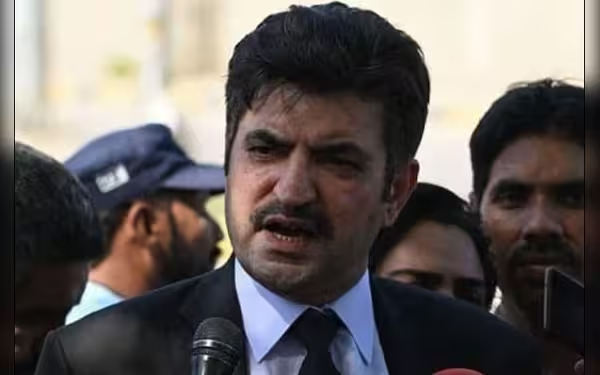Saturday, November 16, 2024 07:51 PM
IHC Ruling Protects Sher Afzal Marwat from Arrest
- IHC rules against arrest without court approval.
- Judicial oversight crucial in politically charged times.
- Police action halted by court's decision.
 Image Credits: tribune.com.pk
Image Credits: tribune.com.pkIHC rules Sher Afzal Marwat cannot be arrested without court approval, emphasizing judicial oversight in politically charged times.
The political landscape in Pakistan has been tumultuous, especially with the ongoing challenges faced by various political leaders. Recently, the Islamabad High Court (IHC) made a significant ruling regarding the arrest of Pakistan Tehreek-e-Insaf (PTI) leader Sher Afzal Marwat. This decision has sparked discussions about the legal rights of political figures and the role of the judiciary in maintaining order during politically charged times.
According to the IHC, Sher Afzal Marwat cannot be arrested in any case without prior approval from the court. This ruling emphasizes the importance of judicial oversight in the arrest process, ensuring that no individual is detained without due process. The court's decision comes at a time when tensions are high, and political leaders are often at risk of being targeted for their affiliations.
As PTI leaders exited the building, police took positions and swiftly moved to detain Sher Afzal. However, the court's ruling effectively halted any immediate action against him, highlighting the delicate balance between law enforcement and the rights of individuals. This situation raises questions about the implications of such rulings on the political climate in Pakistan and the potential for further legal battles.
The Islamabad High Court's ruling serves as a reminder of the critical role that the judiciary plays in protecting individual rights, especially in a politically charged environment. It underscores the necessity for law enforcement to operate within the bounds of the law, ensuring that justice is served fairly and equitably. As the political situation continues to evolve, it will be essential for all parties involved to respect the legal framework that governs their actions, fostering a more stable and just society.













